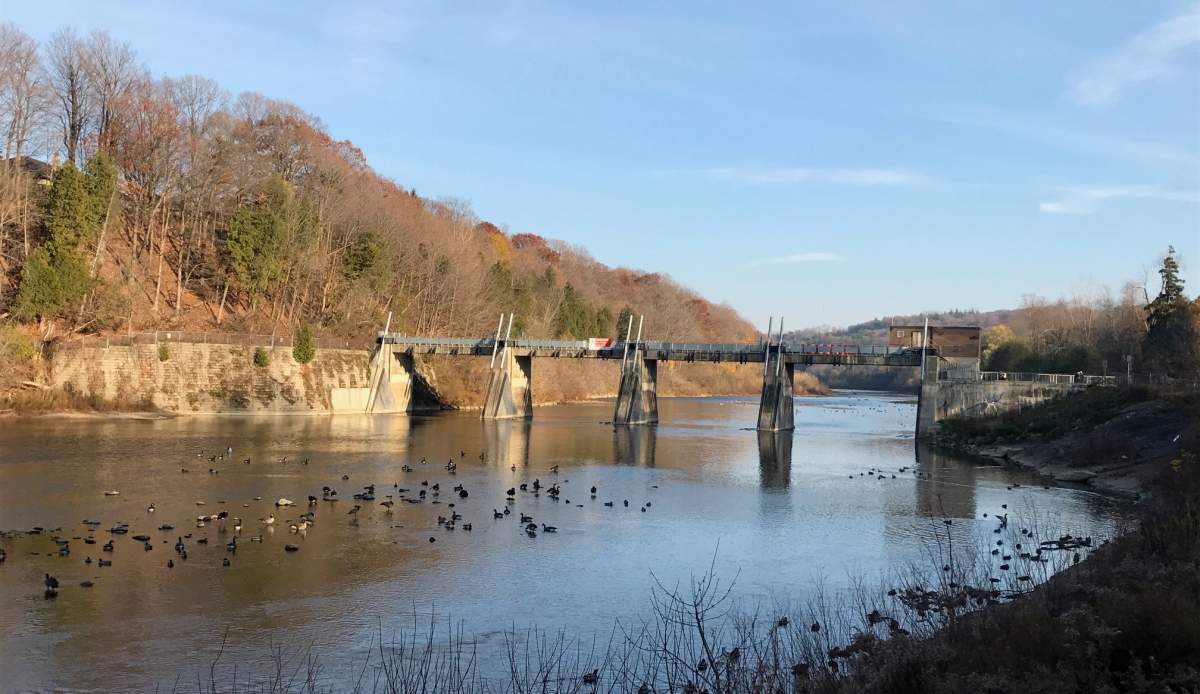A local biologist with the Upper Thames River Conservation Authority laid out why he thinks the Springbank Dam should remain out of commission.

Scott Gillingwater made a presentation to the strategic priorities and policy committee Monday afternoon, saying having rivers flow naturally, unimpeded by dams, has helped at-risk species.
“We have made significant inroads to the protection and recovery of the species in Canada, and part of the reason is because we are removing one of the most at-risk age classes, which is the egg and juvenile, from that initial threat,” said Gillingwater.
READ MORE: Biologist to lobby London politicians to keep Springbank Dam inoperable
He said allowing rivers to run naturally is best, and the province has even eyed legislation to make sure at-risk species have the space they need to flourish.
“There’s been a lot of talk of habitat compensation and a lot of projects, that ‘well, we’ll just put a nest site here, check off that on our sheet that we made more habitat than was available before.’ Unfortunately, they are very floodplain adapted species,” said Gillingwater.

Get breaking National news
According to Gillingwater, the body of water is currently home to 90 species of fish, 30 species of freshwater mussels and 30 species of reptiles and amphibians, along with countless birds, mammals, and invertebrates which all depend on the health of the river. Many of the species that live along the Thames watershed are rare and only occur in a few isolated areas in the province.
Coun. Josh Morgan agreed that considering the science in regards to the effect the dam has on the ecosystem is a major consideration.
“Science is very important to the decision making, and you’re absolutely right, there are a huge number of stakeholders that we, as politicians, have to consider when we make decisions, but this particular constituency and science and how scientists feel about our ecosystem is actually a very important component,” said Morgan.
READ MORE: Bumblebee species added to endangered list
Coun. Tanya Park said during the meeting it was clear to her that the dam shouldn’t be fixed.
“No way in any world that I would support the re-commissioning of the dam,” she said. “It’s just too detrimental to our local environment and all of these species at risk.”
Council voted last year to do an environmental assessment (EA) at a cost of $900,000 to help them decide what to do with the dam. The EA will cover both the dam and the Back to the River project, which is a proposed overhaul of the Forks of the Thames.
Repairing the dam was a campaign promise of Mayor Matt Brown, but the issue has divided council. The EA is expected to be finished in May 2018, which is just a few months before the next municipal election.
The Springbank Dam has been inoperable since 2006 when it was left open for repairs after a flood in 2000, but complications led to a lengthy court battle. The dispute was resolved in late 2015 when the city was awarded $3.77 million.











Comments